The 2023 Beauty Inc Awards
- Oops!Something went wrong.Please try again later.
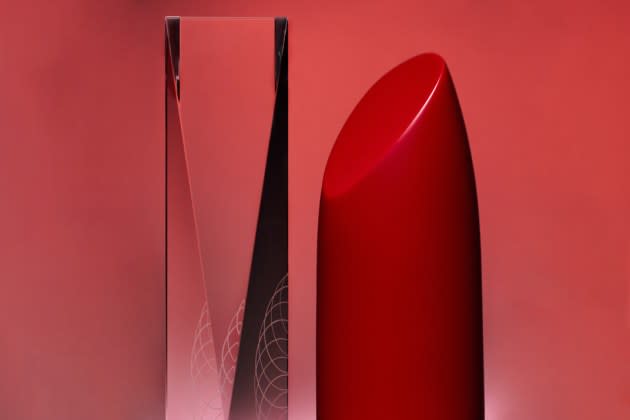
Transformational Deal of the Year: The Estée Lauder Cos. acquisition of Tom Ford
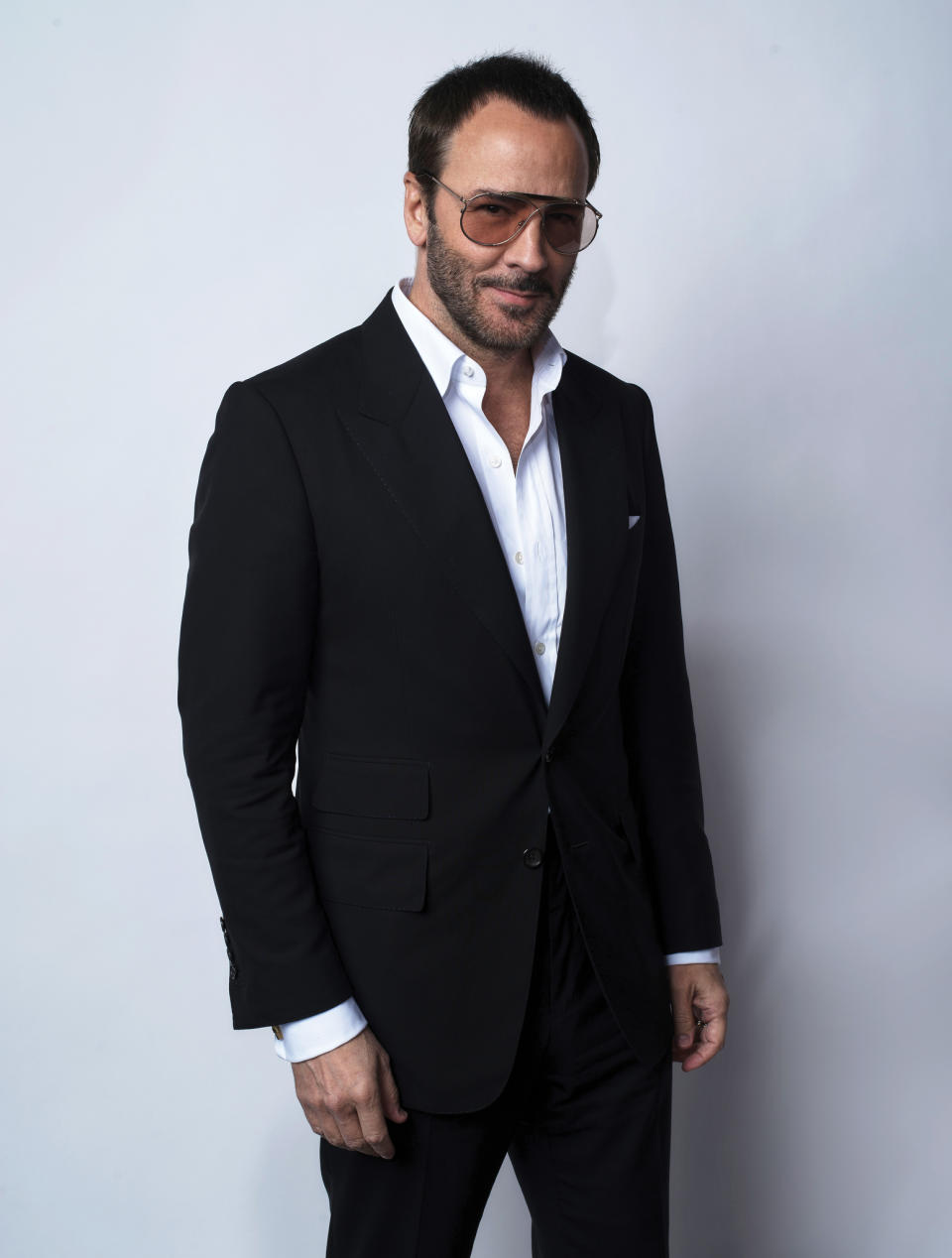
Since the launch of Tom Ford Beauty in 2006, the brand has been a shining star for the Estée Lauder Cos. The fragrance division goes from strength to strength, churning out global hits and sparking olfactive trends; makeup, too, while harder hit during the pandemic, has been directional, and combined, Tom Ford Beauty is on the verge of billion-dollar brand status. No wonder, then, that when the designer put his namesake brand up for sale, The Estée Lauder Cos. outbid rival Kering to acquire it in a $2.3 billion deal that was Lauder’s largest ever and marked the beauty giant’s foray into fashion. “As an owned brand, this strategic acquisition will unlock new opportunities and fortify our growth plans for Tom Ford Beauty,” said Lauder chief executive Fabrizio Freda, at the time of the deal. It also marked a beacon forward during a tough year for the company, which was hit hard by the downturn in China. “This deal will further help to propel our momentum in the promising category of luxury beauty for the long term,” said Freda, “while reaffirming our commitment to being the leading pure player in prestige beauty.”
More from WWD
Product of the Year
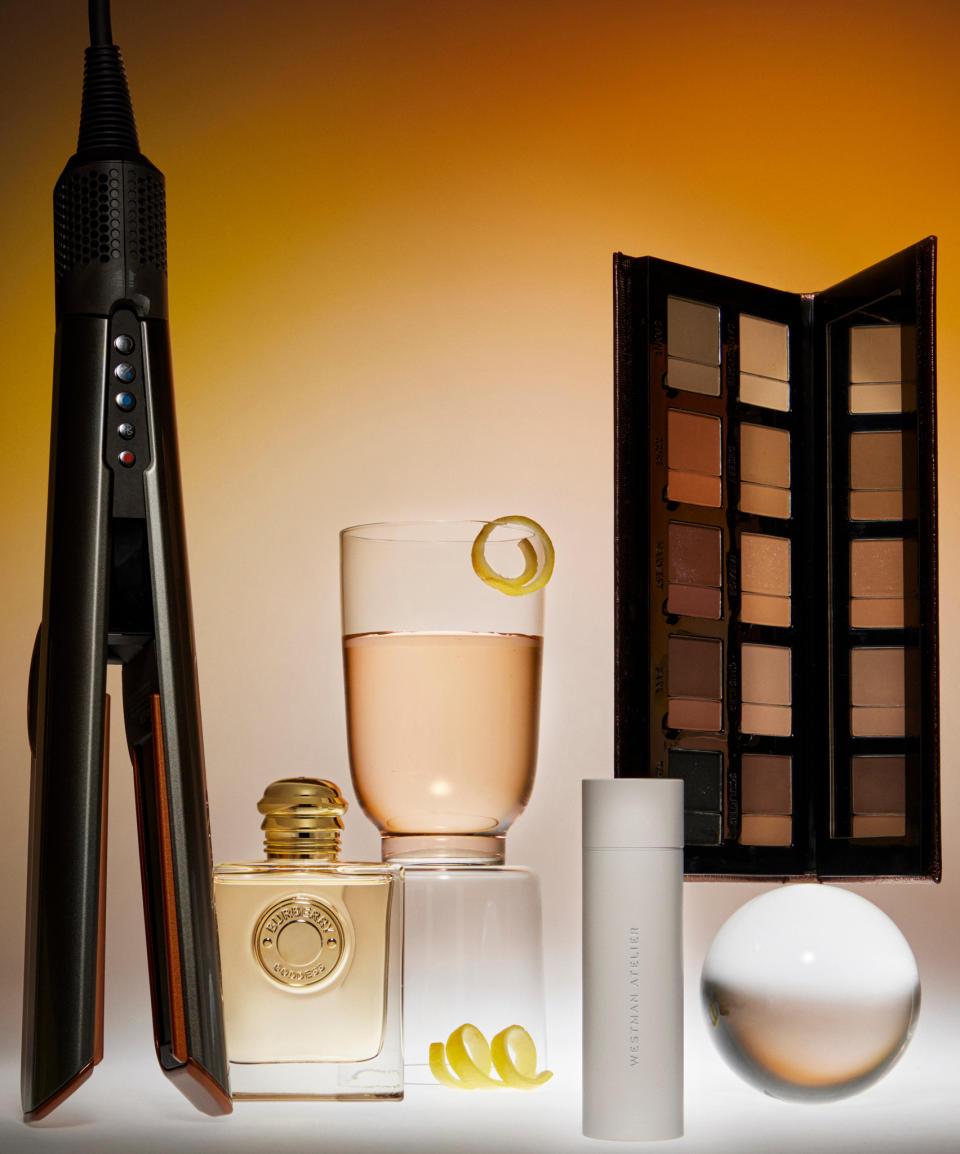
Hair Care: Dyson Airstrait
Since Dyson launched its first hair dryer, the Supersonic, in 2016 it has been keen to disrupt the hair care category and when it announced a $500 million investment to boost hair care tech, it put its money where its intentions were. This year, it made good on that promise with what might be its most revolutionary product yet, the Airstrait, a flat iron that dries and straightens wet hair without any hot plates. Instead of extreme heat, it uses targeted airflow to smooth hair, thanks to slots that distribute air at a 45 degree angle. The hair is sandwiched inside as the airflow pushes moisture out to leave strands dry and sleek and undamaged. The price point of $499 didn’t seem to deter consumers, with the Airstrait quickly racking up four-and five-star reviews across platforms and going viral on TikTok. As prestige beauty continues to gain — ahem — steam at retail, it’s clear that Dyson is on the cutting edge of leading that growth.
Makeup: Danessa Myricks Beauty Groundwork Defining Neutrals Palette
Makeup artist turned product developer Danessa Myricks created some of the most successful launches for brands like Benefit Cosmetics and Kiss. So who better to reinvent an industry staple — the neutral-toned palette — and captivate consumers in a whole new way. The Groundwork Defining Neutrals Palette consists of 10 shades, each in a velvety pomade and coordinating powder. Designed to be used on the eyes, face, cheeks and lips, for shading, sculpting, contouring and coloring, it quickly garnered rave reviews on Sephora.com, including “This is the one palette that really can do it all” and “I’m obsessed.” In its first month, the palette became a top-five bestseller in the category at Sephora, where Myricks also went on a standing-room-only tour with Jackie Aina called “The Fearless Tour,” featuring how-tos, meet-and-greets and a panel discussion. While it capped a big year for Myricks, one thing’s for sure: Despite her success, the entrepreneur has her feet firmly planted on the ground.
Skin Care: Westman Atelier Skin Activator Serum
For the last few years, the beauty industry has been abuzz with the skinification of makeup. But this year, Westman Atelier took a different tack with Skin Activator Serum: Call it the makeup-ification of skin care. The product, five years in the making, was the first foray into treatment for the brand started by makeup artist Gucci Westman and her husband, entrepreneur David Neville. Westman worked with dermatologist Raymond Park to create a multilamellar emulsion that mimics the skin’s structure and contains 15 active ingredients, including four different molecular-weighted hyaluronic acids. Retailing for $150, Skin Activator is said to provide continual moisturization throughout the day and adapt to the skin’s different needs. Westman and Neville have said from the beginning their goal is to create a lifestyle company and envision Skin Activator broadening Westman Atelier’s appeal to men, as well. The strategy is working: The luxury clean beauty brand is one of the buzziest around with sales — said to be in the $100 million range — to match.
Fragrance: Burberry Goddess
Burberry’s newest women’s scent, Goddess, quickly entered the pantheon of sales when it launched in August. The scent, made under license by Coty, shot to the top of prestige fragrance rankings and led the year’s key olfactive trend — the resurgence of vanilla — with a trio of notes including Firgood, also known as vanilla caviar, used for the first time in a fragrance. Goddess was also right on target culturally, tapping into the massive success of Barbie with brand ambassador Emma Mackey for a campaign photographed by Mario Sorrenti. But it wasn’t all glitz and glamour. Burberry Goddess is also the first refillable fragrance in the Coty luxury portfolio, a significant milestone, said Caroline Andreotti, chief commercial officer, prestige. “Packaging is key to transporting our products and protecting our formulas, but it also contributes to our environmental footprint,” she said. “We want to empower consumers to make environmentally conscious choices while indulging in our most luxurious fragrances.”
Wellness: Liquid I.V. Sugar-Free Hydration Multiplier
How do you go from good to great? Remove the sugar. That’s what Liquid I.V. did this year when it introduced a sugar-free version of its hero product, Hydration Multiplier. Noting that consumers have been clamoring for a sugar-free version for years, Stacey Andrade-Wells, vice president of marketing, said, “This is the biggest launch we’ve had since the inception of the company…Market trends are pointing towards a growing sugar-free market.” The product features all-natural ingredients. Rather than artificial sweeteners like aspartame or sucralose, Liquid I.V. Sugar-Free has a proprietary alluose and amino acid blend. Equally as sweet: Sales. The brand, which Unilever acquired in 2020, is said to be closing in on $1 billion in net sales, with the newest iteration expected to deliver a 15 to 30 percent lift.
Breakthrough Brand
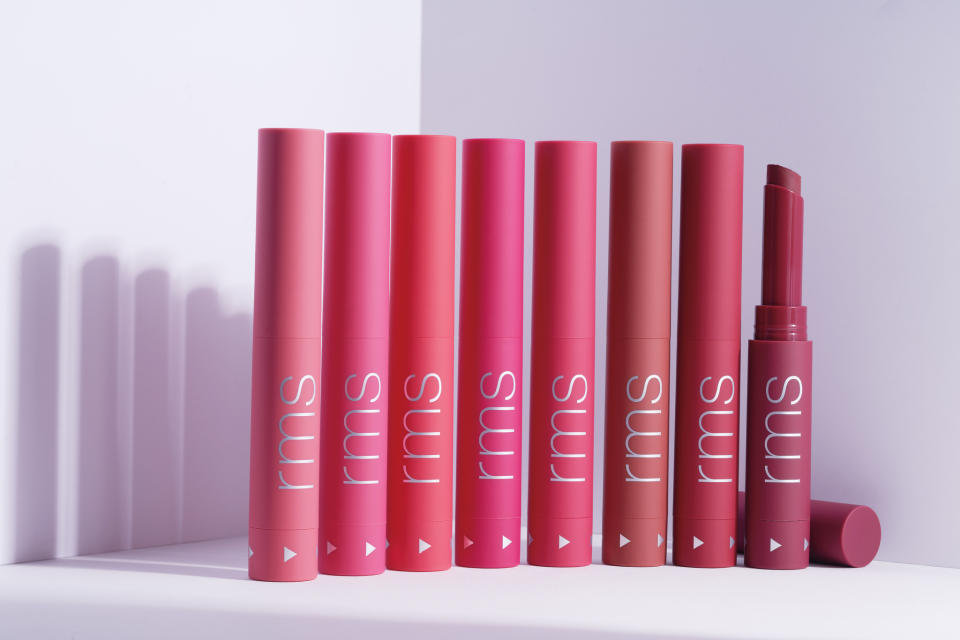
Breakthrough Brand of the Year: RMS Beauty
Long before “clean” was a beauty buzzword, makeup artist Rose-Marie Swift was sounding the call for cosmetics to be made with better, safer ingredients. In 2009, when she launched her brand, RMS Beauty, her closest competitors were in natural food stores — rather than beauty specialty channels. Fast forward more than a decade, and Swift’s message is more relevant than ever, and, under chief executive officer David Olsen, it’s resonating, too. On social media, RMS Beauty has refined its platform strategy, effectively using Swift (one recent video hit a million views in less than a day) and a cadre of diverse content creators to create cross-generational viral moments on TikTok, while leaning into more polished content with judicious use of short-form video to drive engagement on Instagram. The strategy is working: RMS Beauty is cleaning up, with the brand’s website posting exponential sales increases — blush and foundation brushes up 3,473 percent, SuperNatural Serum up 573 percent, Eyelights Cream Shadows up 1,150 percent.
Launch of the Year
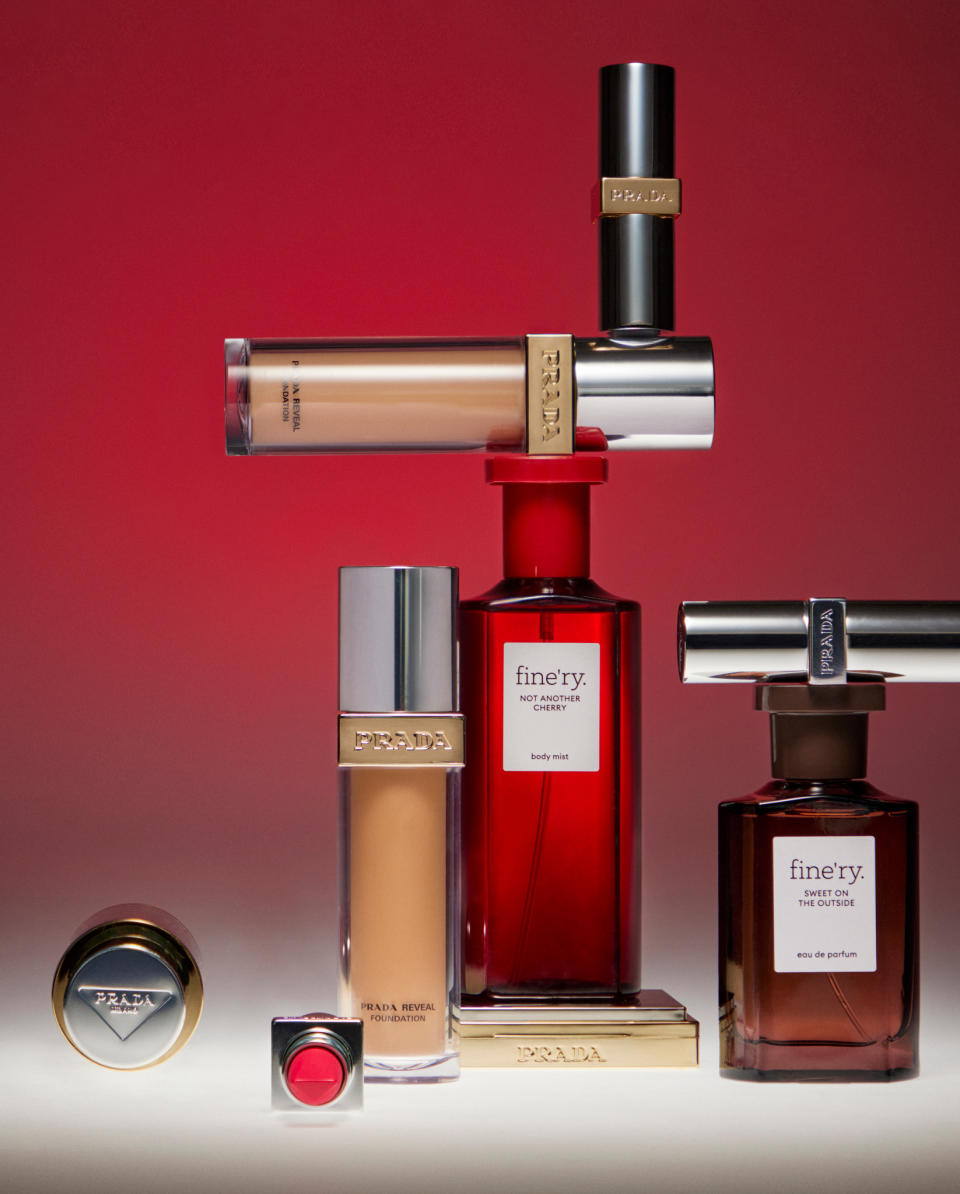
Prestige: Prada Beauty
Miuccia Prada is one of fashion’s most innovative thinkers, so no surprise that when it came time to launch a beauty line with licensee L’Oréal, her goal was to shake things up. “What does beauty mean today?” was Prada’s starting point, the designer said at launch with the brand’s co-creative director Raf Simons, noting the duo believes beauty is the “representation of personality, freedom and self-expression,” and that the idea of care was also crucial. Licensee L’Oréal translated that ethos into a collection of skin care and color cosmetics, tapping Lynsey Alexander as global creative makeup artist and Inès Alpha as e-makeup artist. They dove into Prada’s extensive archives, translating textures, prints and shades into striking products. Likewise, skin care is not about correcting faults, but rather helping the skin adapt to its environment in real time. Coming on the heels of the very successful 2022 introduction of Prada Paradoxe women’s scent, L’Oréal’s ambitions for the line were equally as bold. Said Cyril Chapuy, president of L’Oréal Luxe, “This launch will open a new chapter that will propel the brand to new heights.”
Mass: Fine’ry
In a stellar year for fragrance, Maesa took a different approach to the category — and won big. Fine’ry, comprising nine body sprays and eaux de parfum, launched at Target in February with the goal of democratizing scent. “We saw this huge appetite and desire for people to have access to the true kind of untouchable world of niche, prestige, premium fragrance, and when we looked at the offerings for the consumer at mass, there really wasn’t anything,” said Dana Steinfeld, senior vice president of Maesa’s innovation arm, at launch. The strategy worked. Circana reported that the mass market fragrance business grew at virtually the same rate as the prestige market, as consumers found value in lower-priced products amid a slowdown in demand for high premium luxury scents. For Fine’ry — mission accomplished.
Category Builder of the Year
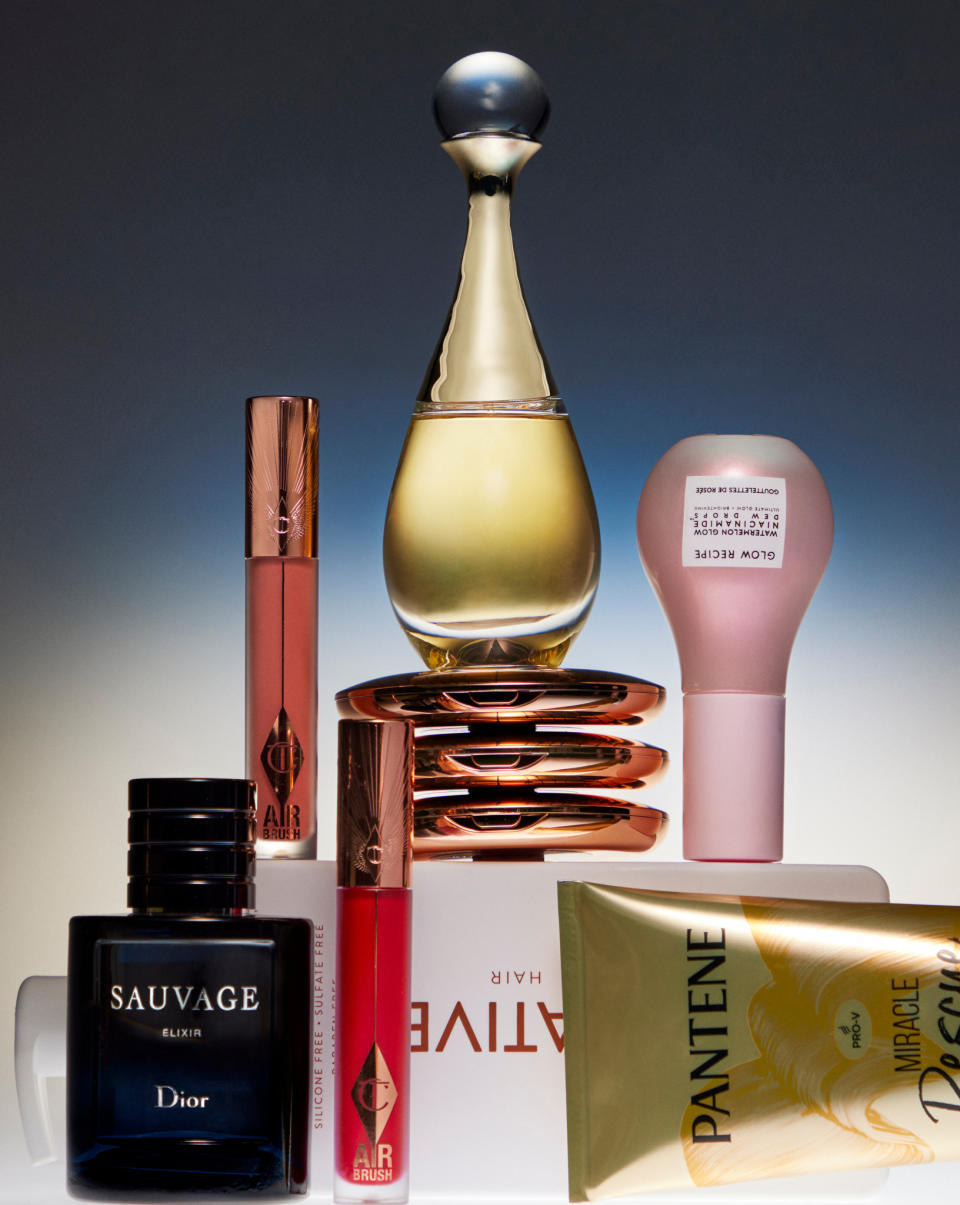
Hair: P&G Beauty
Forget good hair days. P&G Beauty had a great hair year. With a broad portfolio that encompasses megabrands like Pantene, medicated brands like Head & Shoulders, Gen Z darling Aussie and niche brands like Nou, P&G Hair Care attained market leadership position in the U.S. in 2023, in both value and volume share growth. Its acquisition of the explosive textured hair-care brand Mielle Organics in June only solidified that position, while Native, the direct-to-consumer brand it acquired in 2017, added fuel to the fire with its successful foray into hair care. Together, the two brands are the fastest growing hair-care names in the U.S. But P&G is also winning with its heritage brands, like Head & Shoulders, which launched Bare, a clinically proven formula that fights dandruff with just nine ingredients, and Herbal Essences, who inked a partnership with Royal Botanic Gardens Kew to certify its ingredients.
Skin: Glow Recipe
For the first nine months of 2023, prestige skin care was the fastest growing category in beauty based on units sold. And chances are that Glow Recipe is the brand driving much of that growth. Founded by Christine Chang and Sarah Lee in 2014, Glow Recipe has hit its stride, with sales estimated to reach $300 million in 2023 thanks to star products like Watermelon Glow Niacinamide Dew Drops, which on its own was projected to hit sales of $42 million. The brand is a Gen Z heavyweight — #GlowRecipe has more than 1.3 billion views on TikTok — but it also expanded its purview this year with Pomegranate Peptide Firming Serum, whose sales were expected to reach $15 million. Its social media stats are equally as impressive: CreatorIQ reports it has ranked as the top skin care brand in EMV for the past two years — with its 2023 EMV double that of 2018. Talk about a glow up.
Makeup: Charlotte Tilbury
The stars are aligned at Charlotte Tilbury — and not just because of brand ambassadors like Bella Hadid, Kate Moss and — most recently — Elton John. In a red-hot makeup market, the brand was the third-largest share gainer, and its social media clout is equally as impressive, with the second highest EMV of any other beauty brand at $440 million, a double-digit increase year-over-year. In a strong year for makeup, Charlotte Tilbury was a standout, helping make parent company Puig a powerhouse in makeup. Still, innovation continues to be the name of the game, whether that’s a new app that serves as a handy hub for makeup tutorials or a launch like Airbrush Flawless Lip Blur liquid lipstick, bringing the brand’s number-one franchise into a new category. Tilbury’s favorite saying is “Give someone the right makeup and she can conquer the world” and she has effectively made that maxim true to life.
Fragrance: Dior
When it comes to fragrance, Dior is going for the gold. The LVMH Moët Hennessy Louis Vuitton-owned luxury brand refreshed its storied J’Adore franchise this year with L’Or, the first creation from the house’s new master perfumer, Francis Kurkjdian. At the same time, it celebrated the heritage and history of J’Adore, which launched in 1999, with a sweeping show at the Ecole Nationale Supérieure des Beaux-Arts in Paris. Combined with Dior’s bestselling men’s scent, Sauvage, the company has emerged as the fragrance category power player that adroitly leverages its history while always staying on the cutting edge of now. And what’s not to adore about that?
Newcomer of the Year: Polite Society
When Jerrod Blandino and Jeremy Johnson exited Too Faced, the brand they founded in 1998 and sold to the Estée Lauder Cos. for 1.45 billion in 2016, it was just a matter of time before they were back in the beauty game. The boys (as the duo, who are partners in both business and life) have too much fun building brands to sit on the sidelines. No wonder their new venture is named Toy Box Brands, a cross-category incubator that launched Polite Society in August. The clean makeup brand, an Ulta Beauty exclusive, taps into the duo’s trademark cheeky ethos and their prowess in product development, with products including lip plumper, mascara and foundation, where Blandino and Johnson know how to create enduring mega-hits. But Polite Society is an evolution of their past, rather than a reincarnation of it. The line meets Ulta’s Conscious Beauty criteria, but its ethos is very different to most brands of its ilk. “I didn’t ever see myself in any of those brands,” said Blandino. “Where’s the glitz? Where are the actives? There’s room for a really fabulous kick—s clean line.”
Brand of the Year
Mass: Naturium
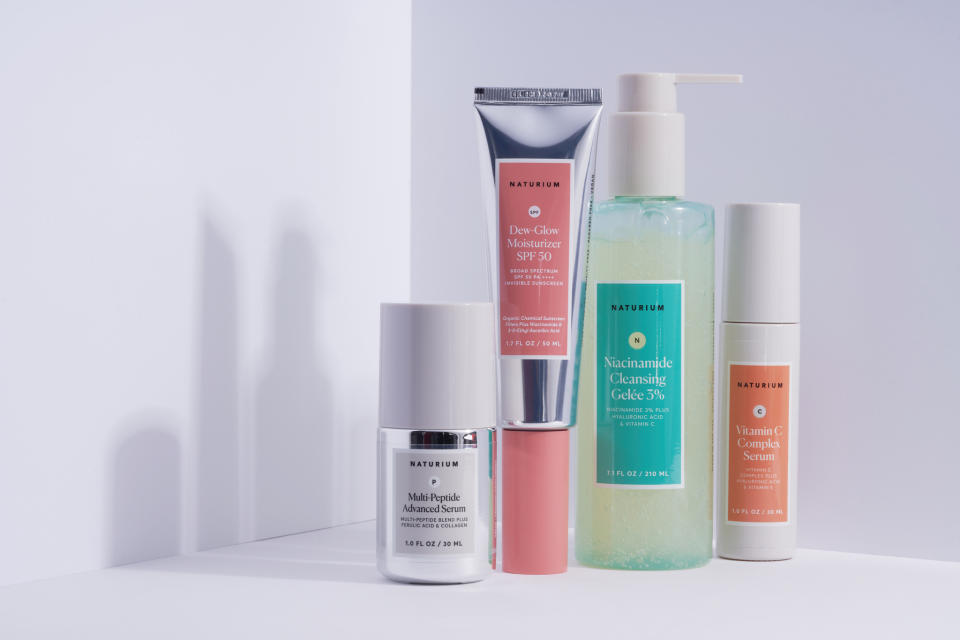
Ben Bennett, founder of The Center, prefers the word accelerator to incubator and no wonder. Naturium, one of the company’s star brands, has been a sales rocket ship, a runaway success since its launch in 2019. That performance paid off this year when E.l.f. Beauty acquired the skin care standout for $355 million. The brainchild of Bennett and lifestyle influencer/journalist Susan Yara, Naturium’s strong value proposition combining active ingredients like niacinamide, vitamin C and hyaluronic acid with botanicals, with an average price of $18, has played well at Target, Amazon and Space NK in the U.K. “We’ve built an incredible brand with numerous superstar formulas, a dedicated community and a world-class team in less than four years,” said Yara at the time of the acquisition. “Our strategies couldn’t be more aligned,” agreed E.l.f. CEO Tarang Amin. “We made the best of beauty accessible to every eye, lip, face and skin concern. They make the best of skin care accessible.”
Prestige: Sol de Janeiro
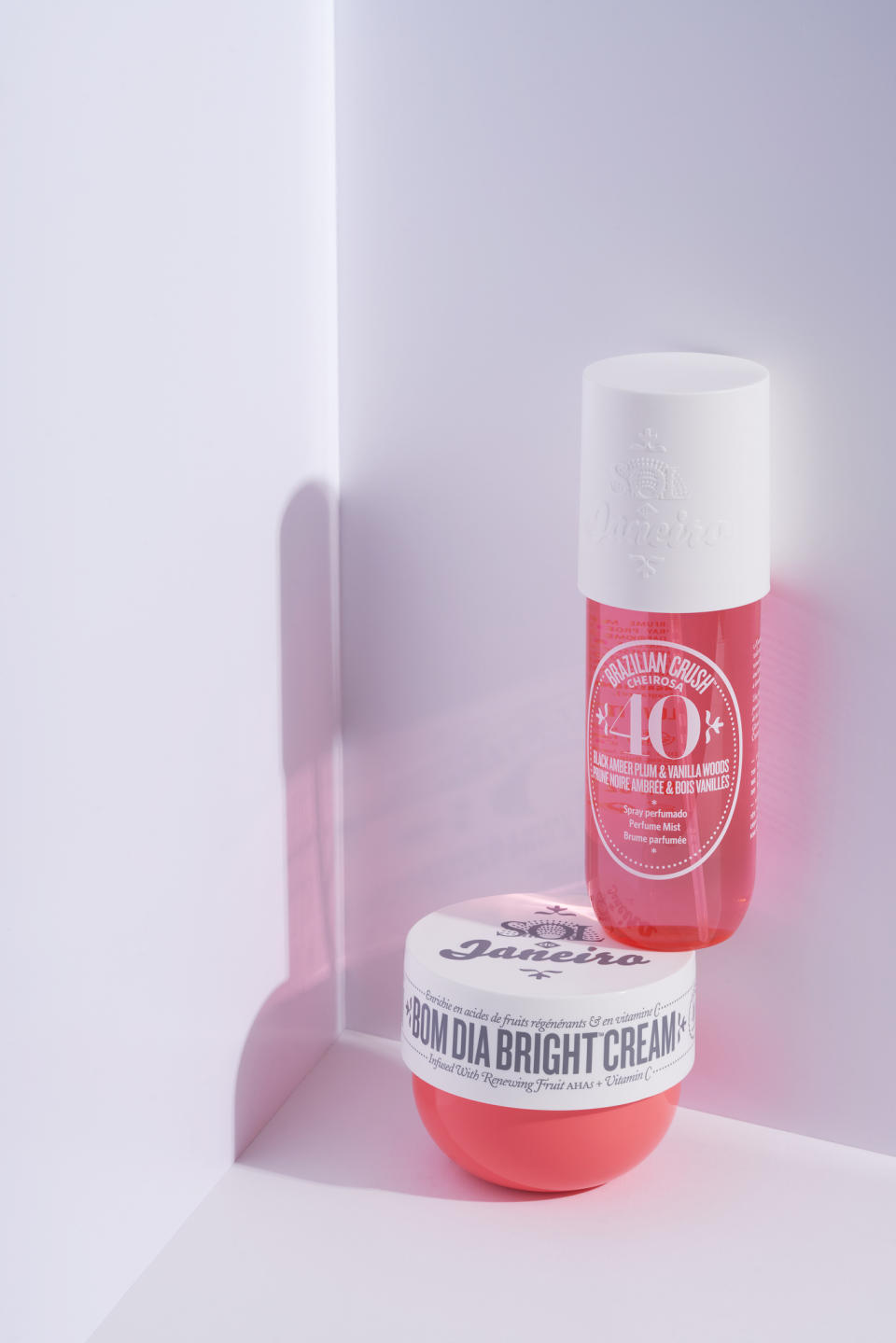
When Heela Yang was crafting the mission, personality and identity of Sol de Janeiro, she imagined her ideal customer as someone who doesn’t just walk, but saunters. Eight years later, the brand is definitely strutting its stuff. Its hero Bum Bum Cream is a top performer in the skin care category (a huge achievement for a body product), while its Perfume Mist is a leader in the scent category. The former has given the entire category of body care a jolt, while the latter has ushered in mists as a top-selling format in prestige. The brand, which was acquired by L’Occitane in 2021, is expected to end the year with $650 million in global retail sales, of which $475 million should come from the U.S. And while Yang is proof positive that a hero product can build a significant brand, Sol de Janeiro has no intention of stopping anytime soon. “We’re blessed with this fun, playful lifestyle brand that can extend across many categories,” Yang said at the WWD Beauty CEO Summit. “We can really have fun. The sky’s the limit.”
Wellness: Love Wellness
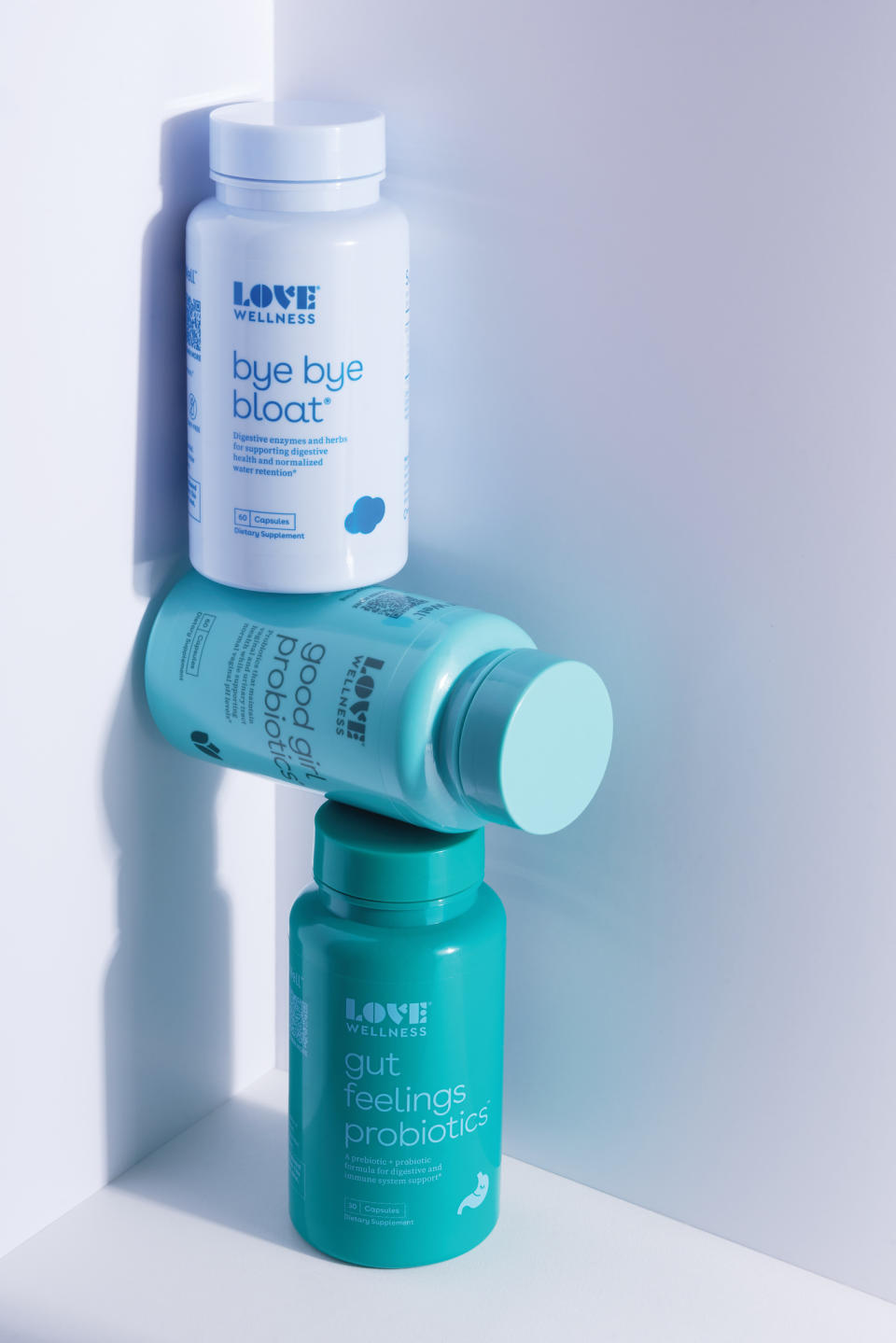
With probiotics, suppositories, digestive enzymes, topicals and a slew of other supplements, Love Wellness has made a name for itself with its approach to the gut-brain-vagina connection. Since its inception in 2016, the doctor-developed products have garnered rave reviews like “life changing.” Since 2021, Love Wellness has reached more than $100 million at retail, which includes Ulta Beauty, Target and most recently 1,600 Walmart doors, which the brand called an $8 million opportunity within the first year. To harness growth, the brand brought on Maria Dempsey, formerly of Nest New York, as chief executive office, with founder Lo Bosworth shifting to chairwoman of the board, where she manages marketing, product development and retail strategy. With more than 32 million views on the hashtag #LoveWellness on TikTok alone, it’s also a social media standout. Bosworth and brand loyalists have posted their own experiences and routines with the products, driving key conversations and taking the taboo out of once hush-hush topics surrounding women’s health.
Buzzy Collab: Lancôme x Louvre
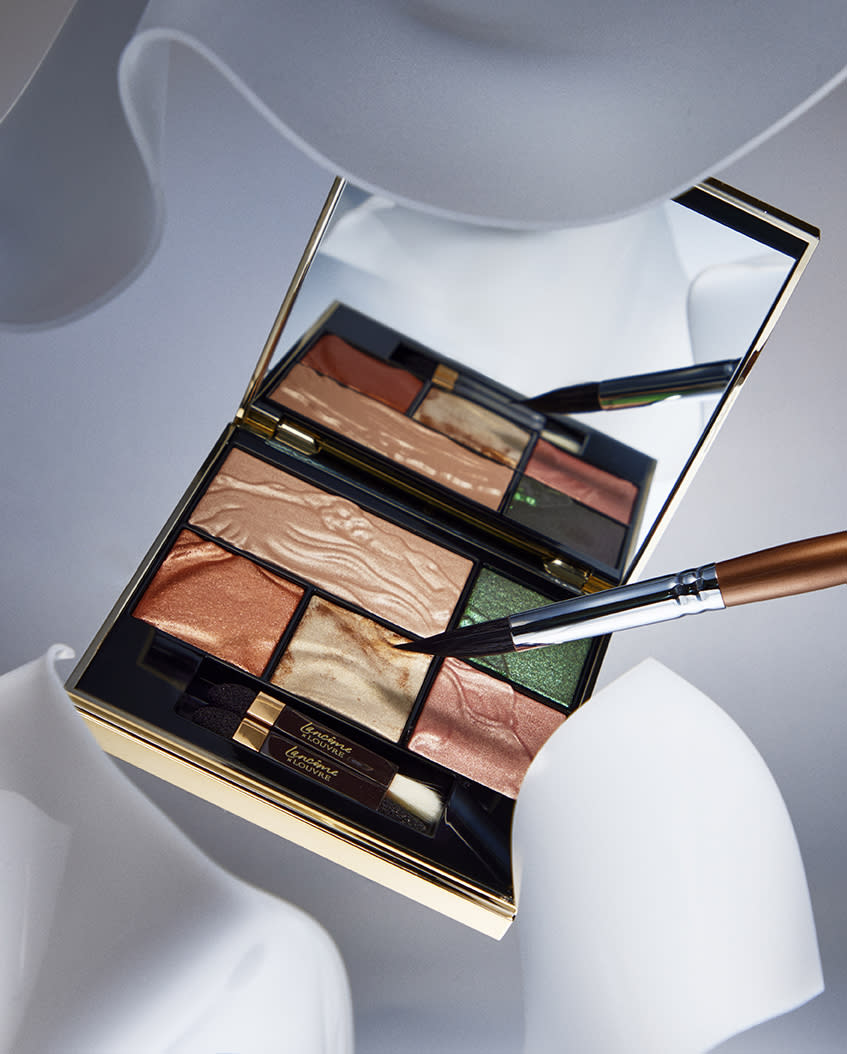
One French icon deserves another, and when it comes to partnerships, Lancôme doesn’t think small. This year, the L’Oréal-owned brand teamed up with the famed Louvre museum in Paris for a limited-edition collection celebrating self-confidence and beauty with the tagline, “Beauty Is a Living Art.” Standouts included refillable lipsticks embossed with architectural details from the museum and the Richelieu Face and Eyeshadow Palette stamped with the likeness of the Venus de Milo. The gala celebrating the collection was equally as starry, with Lancôme ambassadors Isabella Rossellini, Penelope Cruz, He Cong and Emma Chamberlain among the guests lucky enough to roam the museum during off hours. “The Venus de Milo is the ultimate beauty, a symbol of perfection,” said He Cong, “and when you face her, you sense her magnetism, her confidence that just radiates.” Added Rossellini, “The Greek aesthetic, the search for beauty — it marries very well with what is the history at Lanôme.”
Influencer of the Year: Monet McMichael
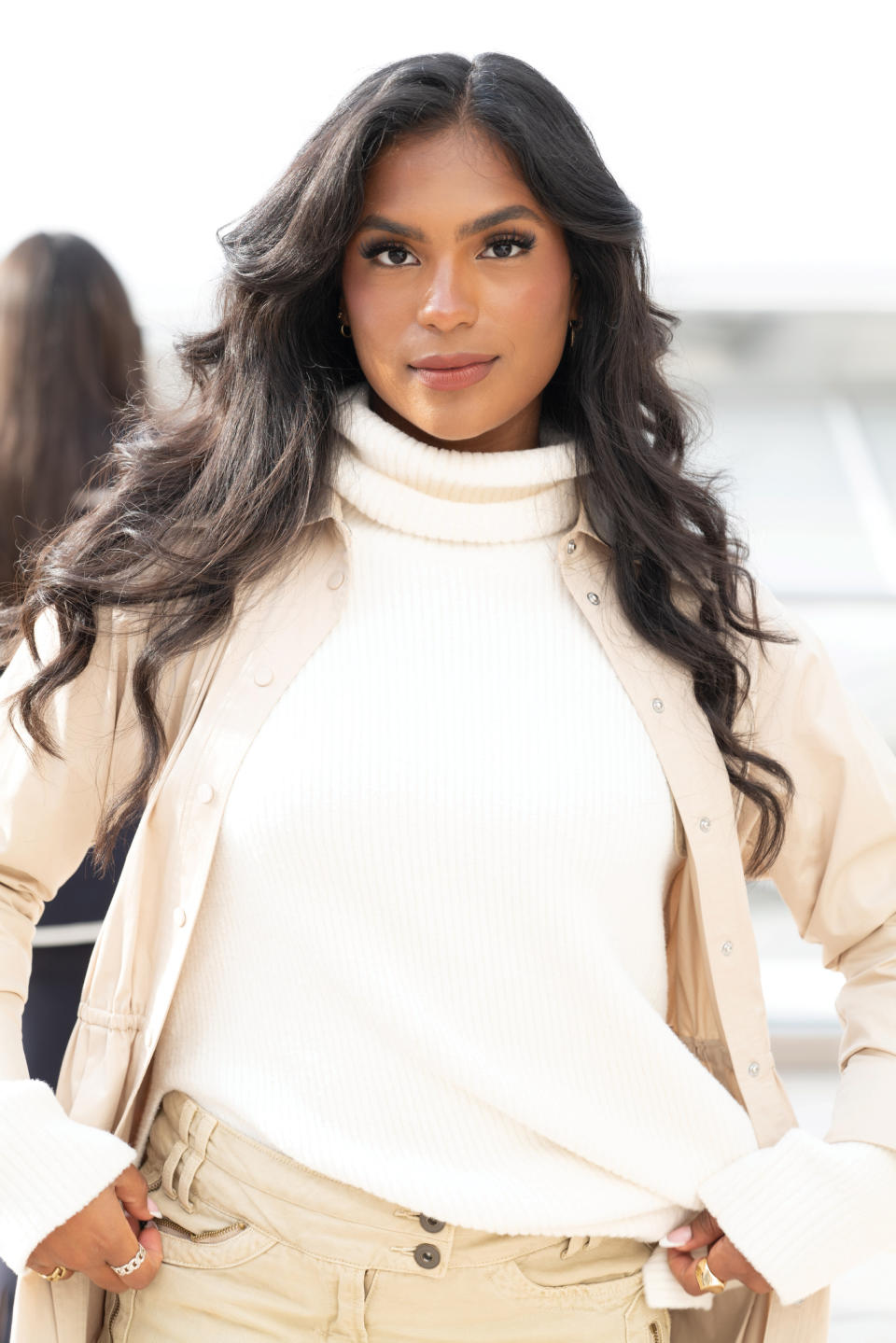
Monet McMichael was nine years old, sitting in her childhood bedroom, when she first declared to YouTube her intent to become a “beauty guru.” She had always loved playing with makeup — to which her mother Alexandra’s often-ransacked makeup bag can attest — and in leveraging her passion into a creative outlet, has since won over a global following of more than 5 million people with her laid-back, unfiltered charm and artful social media content. From obtaining her nursing degree from Rutgers University in 2022 to making her runway debut at L’Oréal Paris’ “Walk Your Worth” fashion show this past fall, McMichael has brought her audience along through it all — including the moments of self-doubt that inevitably come with being perceived at scale. In an era where the word “authenticity” is often characterized as a goal, McMichael embodies authenticity through action, speaking candidly about her mental health and self-love journeys while opening the door for her viewers to do the same. “The magic in creating content is the connection it creates,” said McMichael, who routinely engages with her community in the comment sections of her posts across TikTok, YouTube and Twitter. This approach has made her a powerhouse creator: According to CreatorIQ, McMichael has fueled more than $10.5 million in earned media value for beauty brands in 2023 — up from $2.5 million in 2022.
Creative Force: Patrick Ta
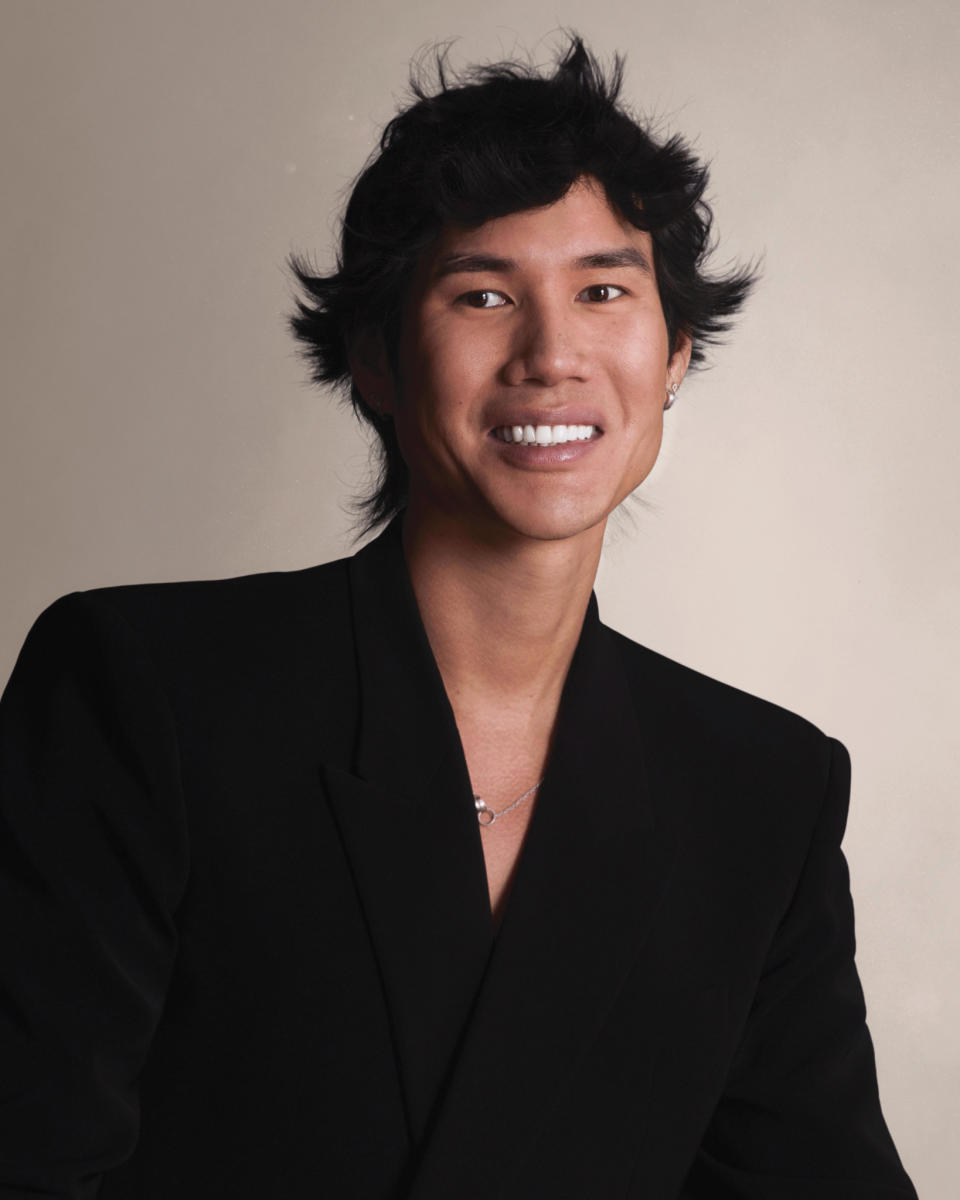
Makeup artist Patrick Ta is known for his meticulous approach to his craft. He often spends up to two hours readying celeb clients like Karol G., Salma Hayek, Camila Cabello and Gigi Hadid for the red carpet. The self-taught Ta has taken the same tack to building his namesake brand, painstakingly creating products that meet his meticulous approach and enable consumers to easily replicate his signature “blush and glow” style, such as Major Headlines Double Take Crème and Powder Blush Duo. Five years in, having survived the pandemic as a baby brand, Ta is really hitting his stride. The entrepreneur is as comfortable in front of the camera as behind, and has used his social media prowess to fuel the business. This year, he created a viral moment with TikTok star Alix Earle, when he flew to her Miami college apartment to bond over beauty. The resulting collab flew off shelves, as has everything else: In 2023, under CEO Kimberly Villatoro, sales have almost tripled, and at Sephora, Patrick Ta has jumped 11 ranks and will enter the year as a top-25 makeup brand. Not bad for a line that still doesn’t play in key categories like foundation (watch this space) and is often merchandised just in Sephora’s Next Big Thing area. The next big thing, it seems, is here.
Retailer of the Year/Company: Amazon
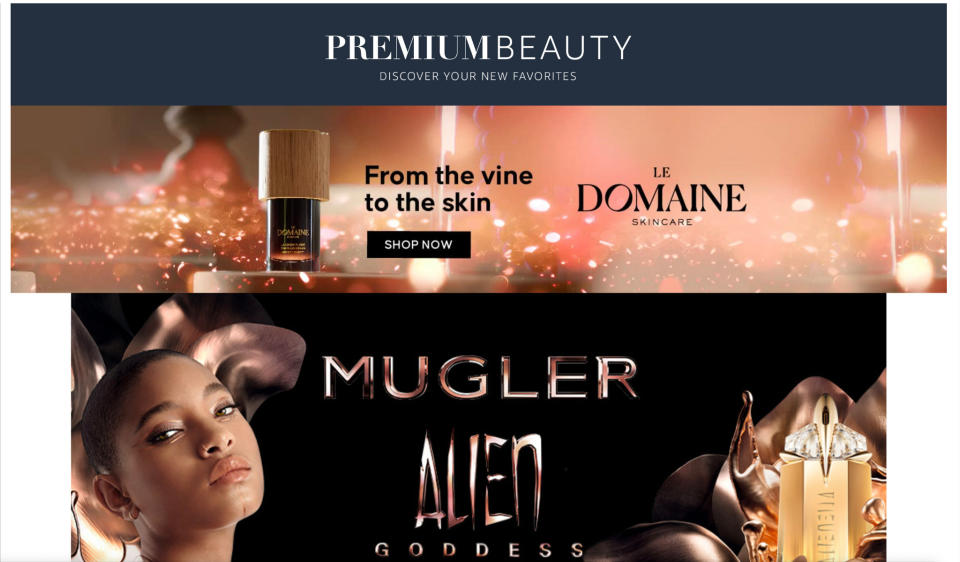
When it comes to prestige beauty, Amazon has long been the elephant in the room, shunned by many prestige brands who feared that the online retailer wasn’t the right environment in terms of image and education for their products. Slowly, though, and with skill, Amazon has turned the tide, becoming a key player with 12 percent market share in prestige and more than 100 million unique beauty shoppers a month. Under the leadership of Melis del Rey, this year Amazon further solidified its role in beauty, focusing on three key areas to attract luxury cosmetics shoppers: reinventing immersive technologies, personalization and elevating the experience. The strategy worked. Lancôme, one of the traditional “big three” stalwarts of department store retailing, launched on the platform this year, joining brands like Laneige, Clarins, ColorWow and Shiseido that were already there. Brad Pitt’s Le Domaine was also a newcomer. The goal, said Del Rey earlier this year, is to inspire consumers with new experiences. “Whether it’s everyday beauty or consumer beauty or luxury,” she said, “we are committed to that mission.”
Retailer of the Year/Person: Creighton Kiper, Vice President, Merchandising, Beauty, Walmart
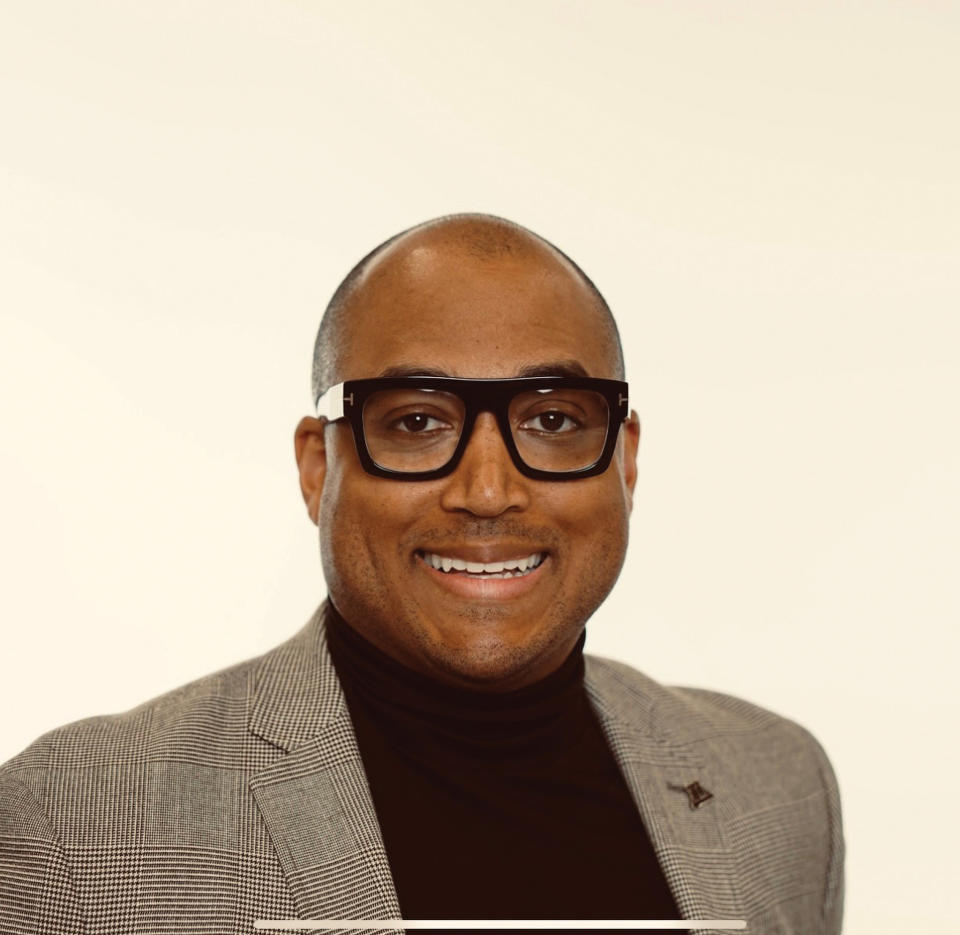
Creighton Kiper was named vice president of beauty merchandising at Walmart in February 2022 and wasted no time in making his impact felt. He not only continued the modernization strategy started under his predecessor, he accelerated it. “We’re doing exceptionally well,” he reported earlier in the year. “We’re probably a bit ahead of schedule.” Despite a mass market beauty business in decline, Walmart’s business has been bolstered by the updates to its brand mix, including heritage and luxury brands. Hair care has been a bright spot, with Madison Reed entering 1,500 doors. In skin care, brands like Bubble and Hero continue to resonate, while newer launches like Current State are soaring. Walmart even sponsored the recently relaunched BeautyCon, all this on top of a steady stream of indie brand launches and even its own incubated brands. Kiper is a Walmart veteran who’s moved from children’s apparel to pet food to health and wellness. But he’s proven himself an able student of beauty. “Beauty changes in trend, it’s like fashion,” he told Beauty Inc. “We’ve got some core tenets that we’ll stick to and then we reserve the right to get smarter.”
Brand Builder of the Year
Mary van Praag, Chief Executive Officer, Milani Cosmetics
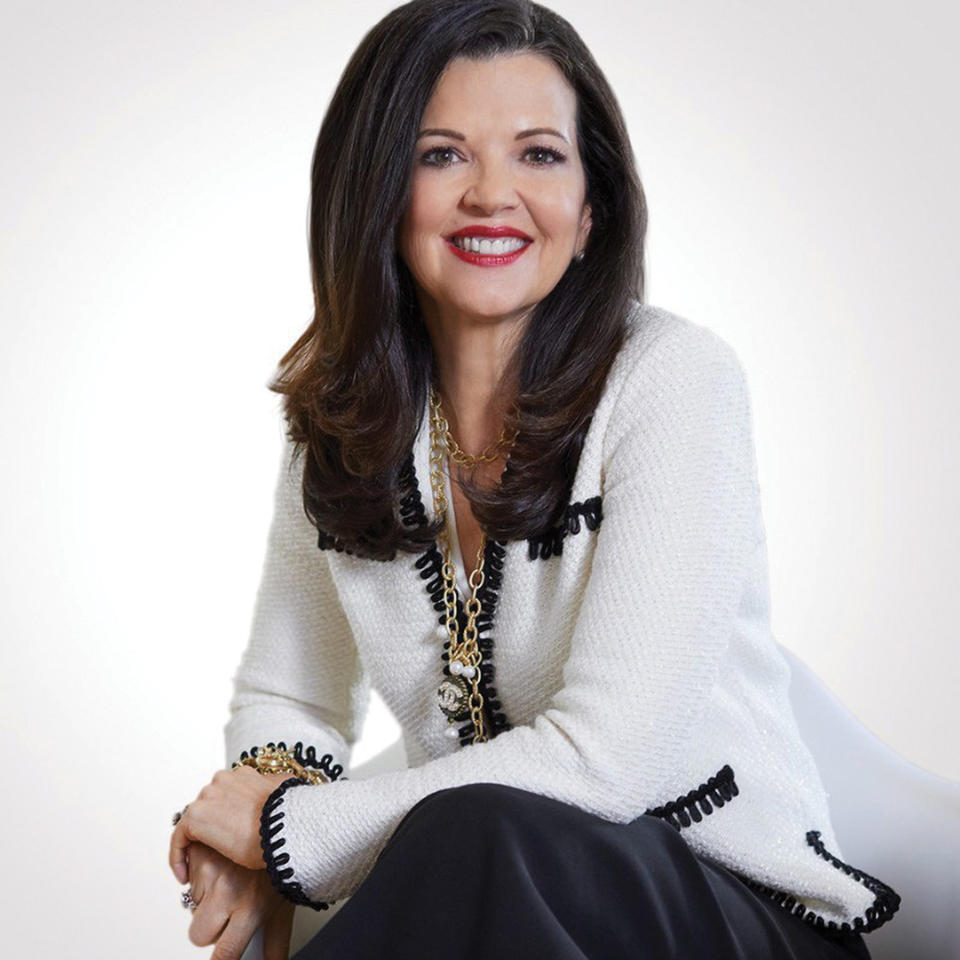
When industry veteran Mary van Praag joined Milani Cosmetics as chief executive officer, COVID-19 was in full swing and the mass color category was down 20 percent. Undaunted, Van Praag harnessed her trademark energy and got to work. She assembled a top leadership team, refocused the business to its core competency of color cosmetics, doubled down on its hero products (Make It Last Setting Spray is up 70 percent) and built back relationships with its key retailers. The strategy paid off. Fast forward three years and Van Praag has turned the business around. Milani is the only independent brand to rank in the top 10 in mass color, with sales up 30 percent this year to an estimated $200 million. Milani is winning with Millennials, thanks to savvy social media campaigns like “NoFilterJustMilani that supported the launch of a 45-strong shade range of concealers. For van Praag, the success lies in the prowess of her team. “I recognized that it probably just didn’t have the right execution on the key elements to drive a vibrant, growing mass color brand,” she said earlier this year, noting that moving forward the company is hyper-focused on the in-store experience, too. “It’s a combination of core architecture, innovation and compelling communication.”
Newsmaker of the Year: E.l.f. Beauty
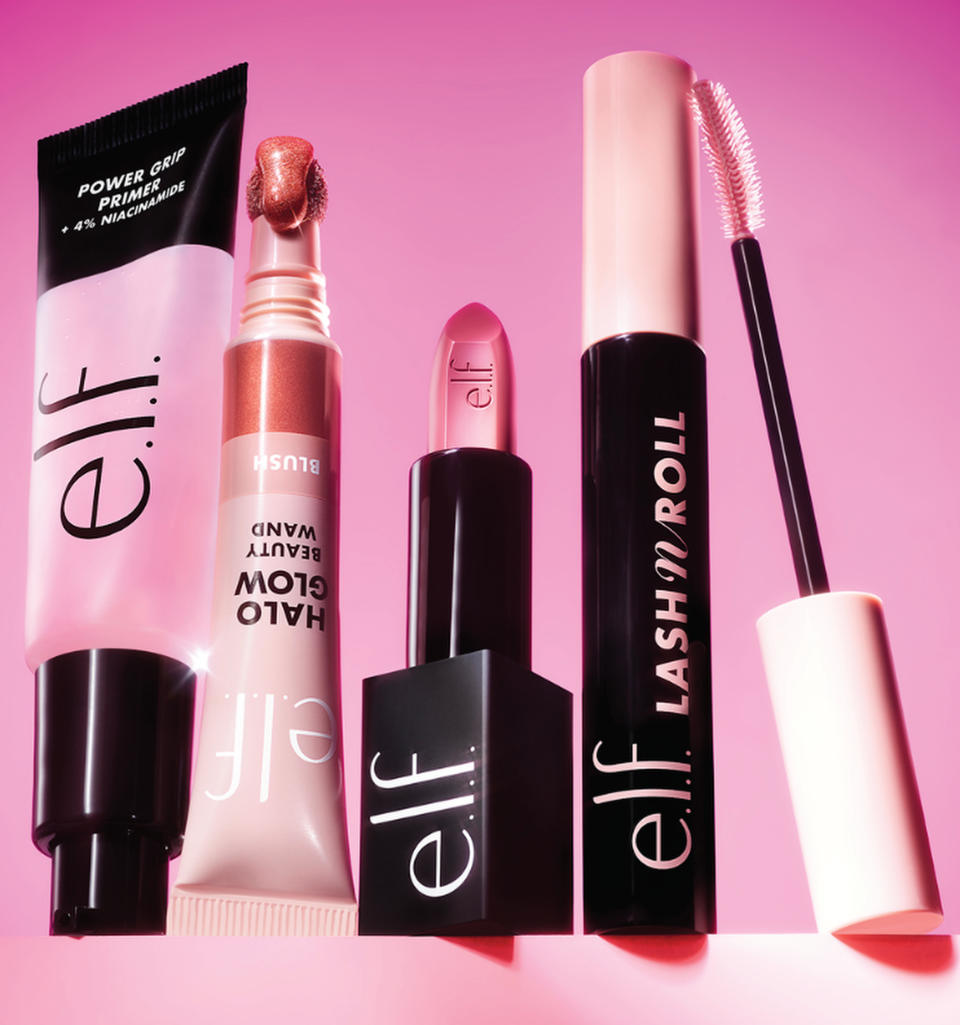
E.l.f. Beauty kicked off 2023 with a buzzy Super Bowl ad and it continued its oversized success story throughout the year. The company notched up its 19th straight quarter of growth under CEO Tarang Amin, making it one of only five publicly traded companies to do so. Its quarterly sales increases were eye-popping: up 76 percent for the three months ended Sept. 30, for example, after posting a 78 percent increase for the quarter ending March 31. While it was focused on its core business, E.l.f. also has an eye to future expansion, snapping up the hot skin care brand Naturium for a cool $355 million as part of its broader strategy to become a key player in skin care. International expansion was also on the docket this year, with European expansion via Douglas. E.l.f. also launched on TikTokShop, the platform where it has become the poster child for success. If that sounds like a lot to accomplish in a year — well, that’s just how Amin, who has instilled agility, innovation and equity as core company values, likes it. The goal: to work at the speed of culture. “It’s less about the time as much as we are able to take the energy of the team and make good ideas happen faster,” he told Beauty Inc earlier this year. “It’s the unique ability of balancing speed, quality and costs. Most companies usually pick one or two of the three,” he continued. “It’s our insistence that we need all three.”
Purposeful Initiative of the Year: The Tampon Tax Back Coalition
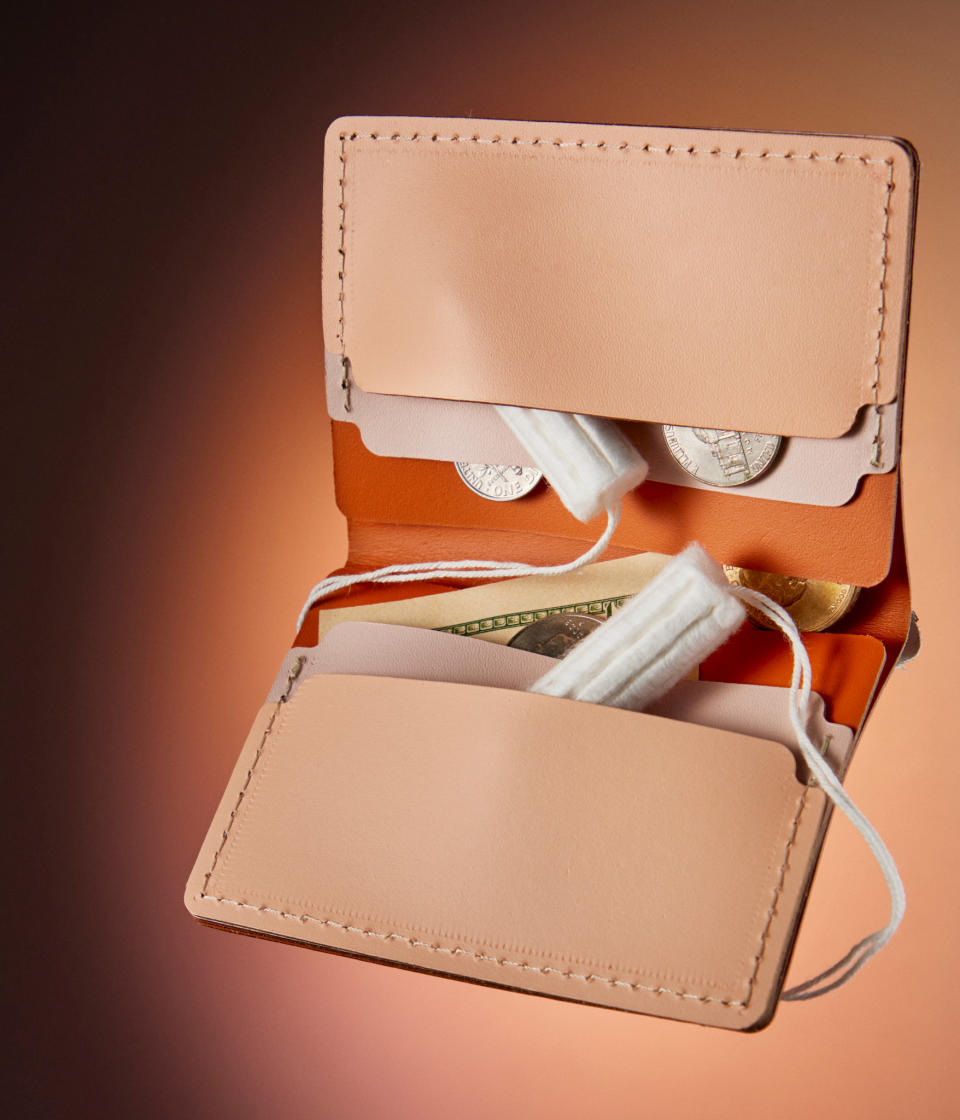
In 21 states across the U.S., menstrual care products are taxed as though they are luxury items. Nadya Okamoto, founder of the period care brand August, has been fighting the tax since her brand’s inception, and this year, she gathered seven like-minded brands to join her, including The Honey Pot, Rael, Lola, Cora, Diva, Here We Flow and Saalt. Together, they formed The Tampon Tax Back Coalition, and collectively they have pledged to reimburse people within 24 hours for any taxes they’re charged when buying feminine care products. To be reimbursed, customers enter their phone number on the Tampon Tax Back website, starting a text chain where they can submit a receipt and receive a reimbursement within 24 hours via PayPal or Venmo. For Okamoto, the coalition is a long-term commitment and she’s reached out to other period care brands like Tampax and Kotex to join. “We need everyone on board,” she said earlier this year. Said Amy Fisher, the CEO of Lola, “Consumers vote with their wallet and they vote for brands that show a sense of community. They’re going to see the enormous support that we’re getting for this initiative and join.”
Sustainability in Beauty: Future Society by Arcaea
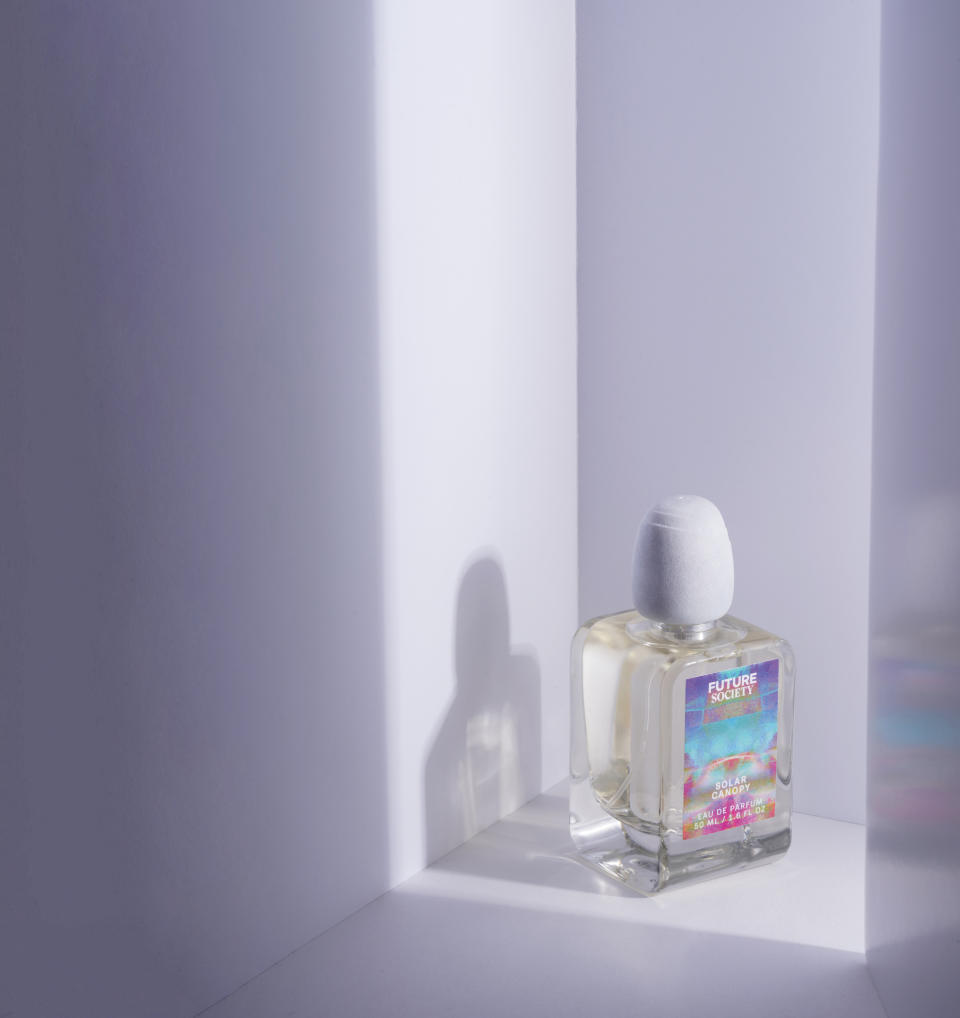
The orbexilum stipulatum was a flowering plant last seen in North America in 1812 — but this year the biotechnology company Aracaea recreated its scent, as well as that of five other extinct flowers in a new lines of fragrances called Future Society. The Boston-based company used DNA sequencing technology to understand the scent molecules the flowers produced, then shared that data with top perfumers including Daniela Andrier, Olivia Jan and Jerome Epinette. The result is the Scent Surrection Collection, a line of six fragrances that launched at Nordstrom. “Fragrance has always been rooted in powerful storytelling and sensory experiences,” said Jasmina Aganovic, the CEO of Arcaea. “We’re excited to show how biology can create new stories and product experiences. Science is about more than clinical studies,” she continued. “It also represents new creative tools.”
The CSR Award: Beekman 1802 Kindness Initiative
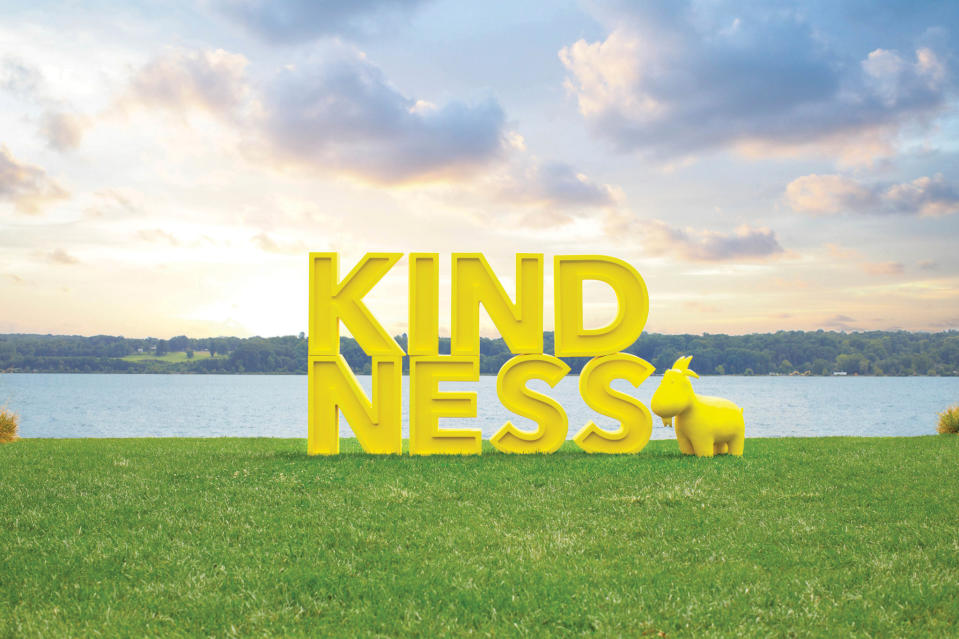
Beekman 1802 has built its business off of an ultra-gentle approach to skin. It’s also taking the same approach with its company culture and employees. The Eurazeo-owned brand is driving employment performance and happiness with a proprietary kindness index that it co-created with the nonprofit organization Kindness.org. “My background as a physician was in functional medicine and the genetics of aging, but 90 percent of what I had to do in my practice is counsel people on preventative medicine. What we’re learning now through the science of kindness is that that’s equally as important,” said Beekman cofounder Brent Ridge. The brand created a way to track kindness and is using artificial intelligence to prompt and measure kindness in the workplace, defining kindness with the ABCs: an action, intended to benefit someone and typically at a cost. The results from giving or receiving kindness are manifold, from a decrease in cortisol levels and inflammation to happier employees. “You actually change the way the DNA repairs itself in the surface of the skin,” said Ridge, “just by giving and receiving an act of kindness.”
Best of WWD

